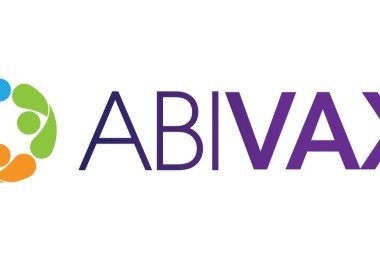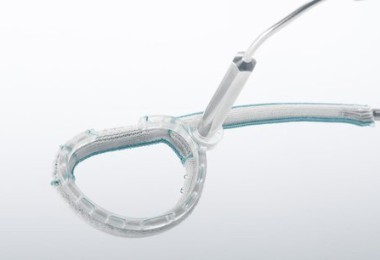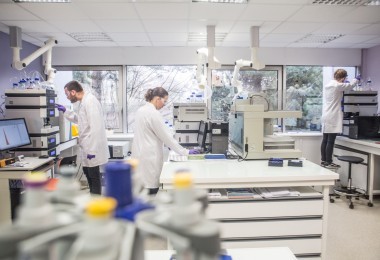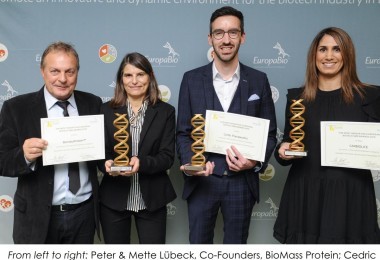
DUBLIN – Abivax SA has rejected an acquisition offer in order to pursue a phase IIb/III trial of its lead anti-inflammatory drug ABX464 in 1,034 COVID-19 patients.
The study will get underway in 50 centers in France and in other European countries in the coming weeks. “We are expecting the first patient in at the end of May – at the latest early June,” CEO Hartmut Ehrlich told BioWorld. Participants will be randomized, in a 2:1 ratio, to receive a 50mg, once-daily oral dose of ABX464 or placebo, on top of standard of care. The primary endpoint will be the absence of high-flow oxygen use, or assisted ventilation, or death, within 28 days.
Eric Cua, of the University Hospital Center of Nice, is principal investigator on the study; Jean-Luc Diehl, of Georges Pompidou European Hospital in Paris, is chairing the steering committee.
The Paris-based company is not yet disclosing when the study will read out. “We are going to be prudent on dates,” Abivax chairman Philippe Pouletty told BioWorld. But a preliminary indication of the drug’s efficacy could emerge quite quickly – the company plans to provide an interim data read-out at the halfway point. Its safety has already been established up to a 100mg dose, Ehrlich said. Despite its immunosuppressive activity, its long-term use in some patients has not led to the emergence of opportunistic infections.
Abivax is one of many firms evaluating whether existing anti-inflammatory drugs or drug candidates can be repurposed to counter the life-threatening immune cascade that can follow SARS-CoV-2 infection of the lungs. Some are testing drugs that block specific cytokines, such as interleukin-6 (IL-6) or its receptor, granulocyte-macrophage colony stimulating factor (GM-CSF) or interferon-gamma. Others are testing small molecules with established immune-related mechanisms, such as Jak inhibition or Bruton’s tyrosine kinase inhibition.
Most of these trials are focused on hospitalized patients with serious disease, Pouletty said, but the ABX464 study will include high-risk patients with early stage disease, including those aged over 65 years, and those with diabetes, ischemic heart disease or high blood pressure. Because of the drug’s convenient oral delivery, the study will recruit early-stage non-hospitalized patients, including residents of nursing homes, which in many countries have been hit hard by COVID-19.
ABX464 is a first-in-class drug with a distinctive mechanism. The drug’s anti-inflammatory activity is indirect. Its immediate target is the cap-binding complex (CBC), a protein complex that binds to the 5’ end of pre-mRNA transcripts and that mediates transcription, splicing, nuclear export and translation. ABX464 engagement of the CBC leads to an upregulation of a microRNA species, miRNA-124, which plays a central role as a negative regulator of inflammation, by lowering production of pro-inflammatory cytokines including tumor necrosis factor alpha (TNF-alpha), IL-1beta, GM-CSF, IL-6, monocyte chemoattractant protein 1 (MCP1) and IL-17. The drug has a broad, pleiotropic effect therefore. Although it hits many signal pathways, it does not shut them down completely, Pouletty said.
It is currently undergoing a phase IIb trial in ulcerative colitis, after a previous phase IIa study showed that some patients refractory to biologic therapies attained clinical remission and mucosal healing after eight weeks of therapy. It appears to have antiviral activity as well. It was originally in development as a drug for treating HIV infection, in which it appeared to reduce viral reservoirs in patients who already had undetectable viral load in their plasma.
Abivax has strengthened the rationale for the present study – which is called miR-age – by demonstrating that ABX464 has an apparent antiviral effect on top of the anti-inflammatory activity. A group led by academic collaborator Manuel Rosa-Calatrava at the Virpath Laboratory at University Claude Bernard, in Lyon, France, showed in an in vitro reconstituted human respiratory epithelium model, which could sustain SARS-CoV-2 infection, that ABX464 had both a dose-dependent inhibition on SARS-CoV-2 replication, as measured by PCR, and a protective effect on epithelium integrity, as measured by transepithelium electrical resistance. No such effects were seen with a related control compound, ABX300, which does not upregulate miR-124. Most other groups, Pouletty said, have relied on a less rigorous preclinical assessment of anti-viral activity in monkey kidney cell lines. “It’s much less informative than the lung epithelial model we have used,” he said. “This is not a cell line, which is very important, as cell lines often have altered functions compared with primary cells,” Ehrlich added. Abivax also has a mechanistic rationale for the antiviral effect, as upregulation of miR-124 inhibits dynamin 2, a GTPase involved in the internalization of viral RNA. It also claims that ABX464 could contribute to tissue healing by upregulating IL-22 – it has already made that observation in a murine model of inflammatory bowel disease.
Abivax’s freedom to pivot into COVID-19, even with an offer on the table, is a function of its shareholder base. Venture capital investor Truffle Capital – of which Pouletty is co-founder and CEO – still holds 46% of the company’s equity, while Sofinnova Partners holds another 9% and an undisclosed family office holds 8%. All have backed the present course of action, as does the company’s leadership. “Hartmut and I and the board decided it was our duty to participate in the fight against COVID-19,” Pouletty said.
Its existing value proposition still stands, moreover. Despite the pandemic, Abivax has continued to recruit patients onto the phase IIb trial in ulcerative colitis. So far, it has enrolled 100 patients onto the study, which has a final target of 232 participants. “It has slowed us down a little,” Ehrlich said. It now expects to report top line data around the middle of the second quarter in 2021, instead of at the end of 2020.








